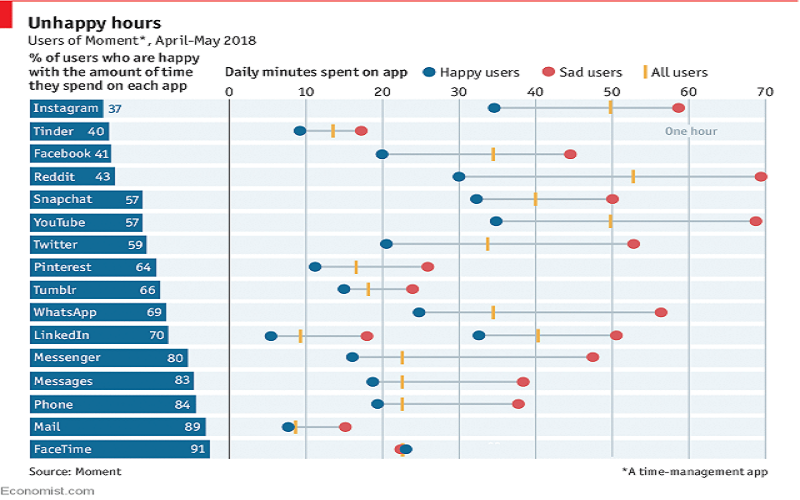
HOW HEAVY USE OF SOCIAL MEDIA IS LINKED TO MENTAL ILLNESS (THE ECONOMIST)
A few weeks back, the Mental Health Foundation held its annual “mental-health awareness week” campaign. Approximately 25% of British adults have been diagnosed at some point with a psychiatric disorder, costing the economy an estimated 4.5% of GDP per year. Mental illness can occur from a variety of causes, but a growing body of research seems to indicate that, in young people, they are linked with heavy consumption of social media.
According to a survey in 2017 by the Royal Society for Public Health, Britons aged 14-24 believe that Facebook, Instagram, Snapchat and Twitter have detrimental effects on their wellbeing. On average, they reported that these social networks gave them extra scope for self-expression and community-building. But they also said that the platforms exacerbated anxiety and depression, deprived them of sleep, exposed them to bullying and created worries about their body image and “FOMO” (“fear of missing out”). Academic studies have found that these problems tend to be particularly severe among frequent users.
Facebook’s founding president, Sean Parker, has admitted that their product works by “exploiting a vulnerability in human psychology”. An experiment by five neuroscientists in 2014 concluded that Facebook triggers the same impulsive part of the brain as gambling and substance abuse. Yet it is difficult to prove that obsessing over likes and comments causes mental illness, rather than the other way around. The most convincing effort was a survey that tracked a group of 5,208 Americans between 2013 and 2015. It found that an increase in Facebook activity was associated with a future decrease in reported mental health.
